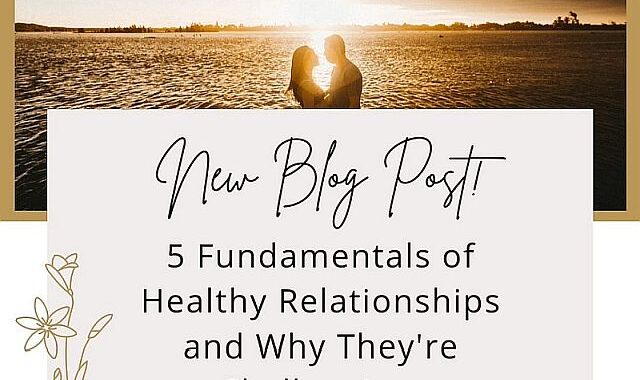Maintaining a healthy loving relationship is vital for personal well-being, happiness, and fulfillment. It requires effort, patience, understanding, and consistent work. Many of us already know about some of the key elements that can help in maintaining a healthy relationship. Things like good communication, compromise, trust, forgiveness, and being true to yourself and your values all play pivotal roles. However, there’s often more to it and even these 5 fundamental elements can be challenging to put into practice at times. Here are some reasons why.
Good communication takes certain skills that not everyone has learned to practice effectively. It’s not just about using words and it’s not always easy. It requires honesty and being able to express your thoughts, feelings, and needs in a clear and respectful manner. It also means being able to listen actively to your partner and trying to understand their perspective. All of this can get very complicated when emotions, past history, resentments, and trauma come flooding in.
Compromise is another element that’s often discussed when trying to maintain a healthy relationship. And while being able to find a middle ground and make mutual decisions that benefit both partners sounds reasonable and good on paper, it often poses difficulties. The very definition of compromise is a mutual “concession” or accepting standards that are “lower than desired.” And who wants that? No one wants to lose or feel like something important is taken from them. If we feel that the scales are unbalanced and over time one partner is compromising more or more often, this can build resentment and lead to contempt which is a relationship killer. Learning how to cooperate and re-frame unhelpful narratives to more of a “win/win,” requires patience and maturity that only happens with practice over time.
Trust is crucial for any healthy relationship, but what happens when trust has been broken or if past history has made it feel unsafe to trust or even feel comfortable knowing how to trust? It takes time to build trust and it requires consistency, honesty, and transparency. It also takes self-work to help heal past traumas, set healthy boundaries as well as keep promises, and be reliable, dependable, and worthy of trust.
Forgiveness is also an important aspect of a healthy relationship. It’s normal to make mistakes and experience hurt and misunderstandings, but it’s essential to be able to forgive and give each other a chance for restoration. Forgiveness is not about forgetting, but it’s about granting grace, moving forward, and learning from past mistakes. It is also a learned process that involves knowing how to ask for, grant, and accept forgiveness in a healing way that is not superficial but really genuine.
Being true to yourself and your values is another important component in maintaining a healthy relationship. It’s important to maintain your individuality and to be true to yourself and what you believe. This means not hiding your authentic self for the sake of the relationship. This might be challenging if you are not sure of who you are or what you value or if you don’t feel accepted for your authentic self. It can also contribute to emotional turmoil if you tend to be a people pleaser, have an anxious or avoidant attachment style, and/or fear being alone more than betraying yourself.
So you can see some of the reasons why maintaining a healthy relationship takes continuous effort and requires more than just patience, understanding, and a willingness to work on the relationship. Communication, cooperation, trust, forgiveness, and being true to yourself are all important elements that can help you create a strong, lasting relationship. However, each of these elements can be difficult to practice effectively without some help or guidance. As a Licensed Marriage and Family Therapist I help couples and individuals improve the quality of their relationships. In my book Blockbuster Love: Lessons from the Movies on How to Create Lasting Love, I use movies to help discuss and depict ways to practice these elements more effectively. I’ve also created a workbook, which provides activities and reflection questions to aid in creating the love you desire. It’s free for a limited time by simply clicking here and signing up to be on my mailing list. If you are experiencing distress in your relationship and would like to speak with a therapist, please call 818-806-9170 to schedule a free 10-minute phone consultation.
Remember, relationships take work, and it’s important to be patient, understanding, and compassionate with yourself and each other. Always strive to learn from each other and make a constant effort to improve your relationship. You’re worth it!
- Navigating Emotional Differences in Relationships: When One Partner Loves What the Other One Hates - April 10, 2025
- Love, Lies & Movie Magic: Relationship Myths That Fooled Us 🎬❤ - February 13, 2025
- Navigating Relationship Struggles During the Holidays - December 21, 2024
